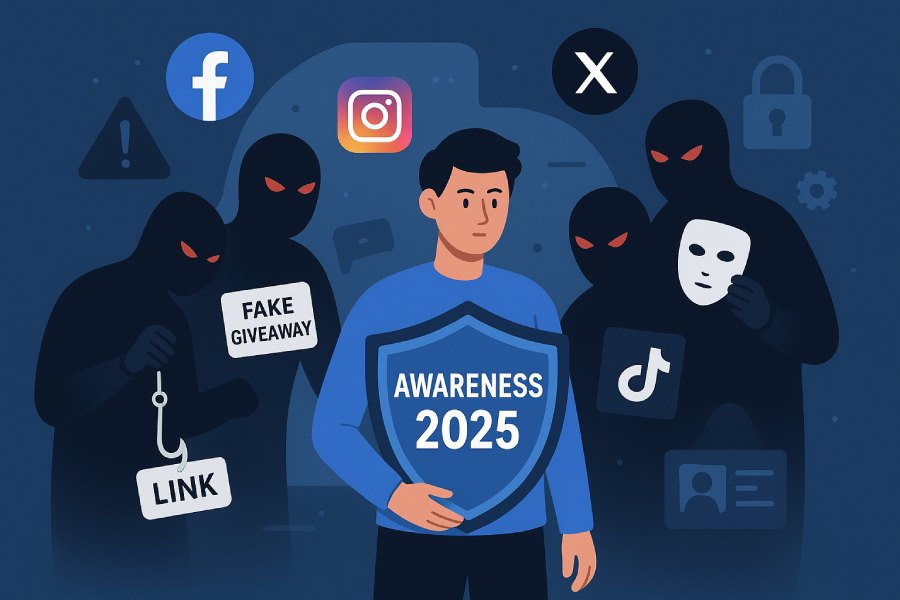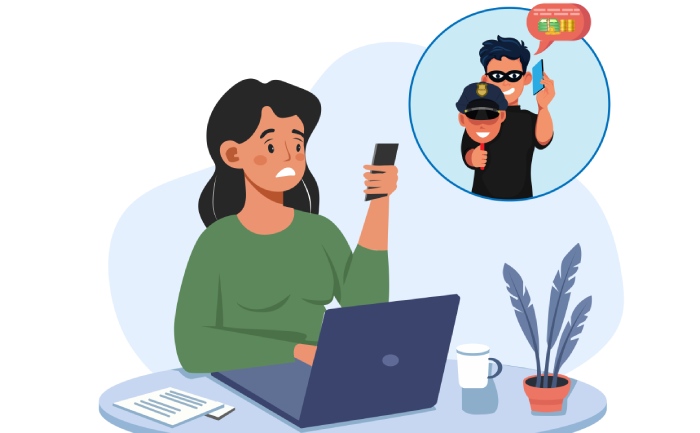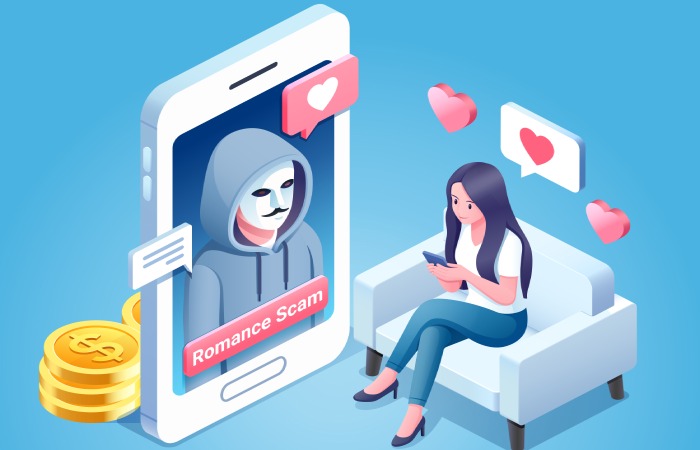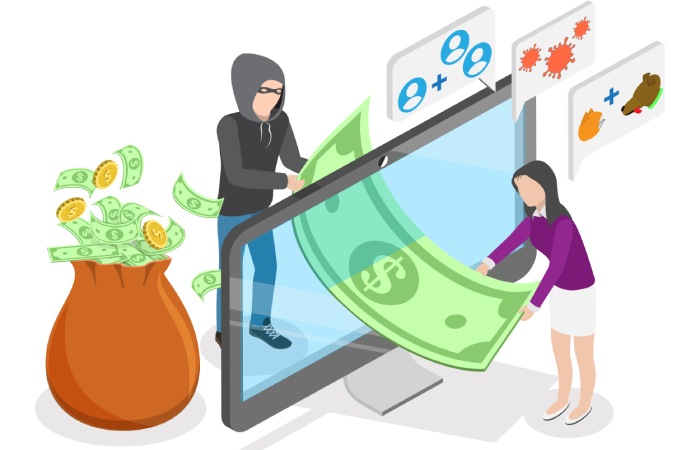Social media has become intricately woven into our everyday lives. We use it to keep in touch with friends and family, make new connections, and stay updated on current trends and news.
According to Statista, more than 5 billion people worldwide use social media, whether it’s Facebook, Instagram, X (formerly Twitter), TikTok, or a combination of several platforms. That’s over 63% of the global population.
But with such a massive reach comes risks. Social media users, all 5 billion of us, are potentially exposed to scammers looking to take advantage of our curiosity and trust. From deepfake videos to impersonation and fake giveaways, fraudsters are using social media platforms to trick people into handing over their personal details.
It’s time to fight back. Here’s a look at three common social media scams, and what you can do to protect yourself.
Impersonation Scams
This is a popular one. This scam involves scammers impersonating a celebrity or a real-life business and luring people into following, engaging, and sharing their posts.
Oftentimes, they’ll claim that you’ve won a contest and send instructions on how to claim your gift. Of course, these instructions will involve revealing sensitive information such as your name, address, birthday, and even banking details.
Some impersonators take things a step further by actually asking for money under false pretenses. They might say they’re raising funds for charity, or that they’re stranded in a foreign country and need quick cash.
These things happen more than we know. Early in 2025, an Evanston woman was scammed out of more than $60,000 by a fake Kevin Costner on Telegram. She thought she was making an investment that would yield returns, only to later realize that the celebrity was just a scammer. Sadly, the imposter was never caught.
Romance Scams
Romance scams are also, sadly, quite popular on social media. This isn’t too surprising given that the bulk of today’s relationships start online. In fact, according to Global Dating Insights, an impressive 60% of couples first met their partners online.
Here’s how romance scams work: a scammer will usually create a fake profile and use it to start relationships, usually long-distance, with one or more unsuspecting victims. The goal is simple: establish trust and trigger romantic feelings. Once this is successful, the scammer invents a scenario or crisis that requires financial help.
Because the victim thinks they’re in a genuine romantic relationship, they quickly fall for the scam and wire the money over. In 2024 alone, more than 60,000 romance scams were reported, costing victims approximately $1.20 billion in losses.
Fake Giveaways and Contests
Scammers may also pose online as celebrities and popular brands to lure the unsuspecting into sharing personal details in exchange for nonexistent prizes.
These fake giveaways and contests often promise exotic getaways, expensive devices, and even mouth-watering sums of money, all fake. Giveaways like this make people lower their guard and fall into the FOMO (the fear of missing out) trap.
Once that happens, it’s easy enough to convince the victim to click on a link, complete a form, and share sensitive information that can be used for identity theft or sold on the black market.
Now, here’s the thing: legitimate giveaways do exist. In fact, more than 55% of businesses use contests and giveaways as part of their marketing strategies on Facebook and Instagram. The key is to do your due diligence so you don’t end up a victim. Do your due diligence to avoid scams and ensure giveaways align with your marketing campaigns. Using marketing collateral services can help create trustworthy, engaging materials that reinforce your brand.
The True Cost of Social Media Scams
It’s easy to think that social media scams are only about monetary loss. But the reality is more complicated. Victims are often embarrassed, anxious, and even isolated after falling victim to these scams. And when you add that to the everyday pressures of social media usage, it can really take a toll on mental health.
In fact, the concern that social media platforms contribute to anxiety, depression, and other mental health struggles among users is growing by the day.
According to TruLaw, multiple lawsuits are currently filed across the USA, claiming that Instagram and other social media platforms intentionally design features without considering the users’ well-being.
All these make one thing clear: it’s not just about protecting yourself against financial loss. It’s also about your peace of mind.
Protecting Yourself From Social Media Scams
Social media has come to stay, and while it offers really amazing benefits, it comes with a dark side. The good news is that with a few commonsense steps, you can stay safe online.
Rising social media scams and phishing attacks highlight the urgent need for stronger phishing protection and user awareness against evolving scam tactics.
- Be skeptical about offers on social media, especially if they’re exaggerated or overly positive.
- Always verify that you’re actually talking to the real celebrity or brand, even if it means visiting their official website.
- Never ever give out your personal information online, even if you think you know who you’re dealing with.
- Avoid opening links and attachments unless you’re absolutely sure of the source.
Hopefully, this article has taught you how to recognize scams early and what to do. And if you or someone you know has been a victim, report to the Federal Trade Commission (FTC) as soon as possible. They may be able to help.






